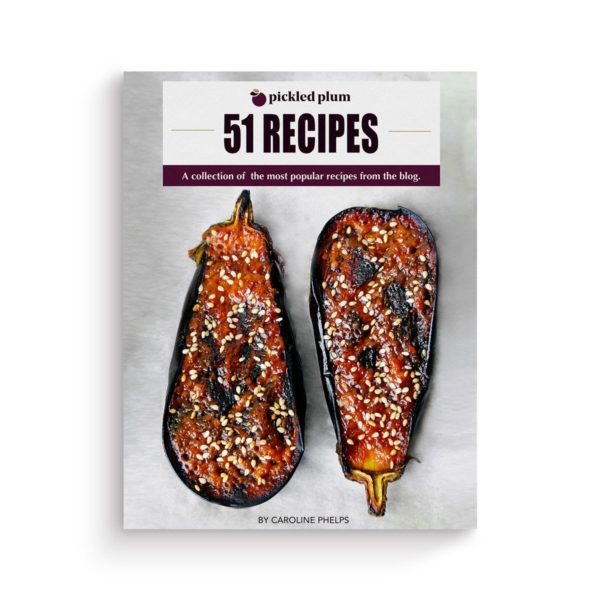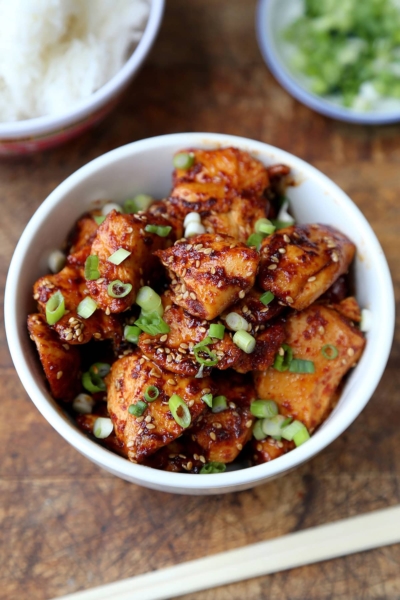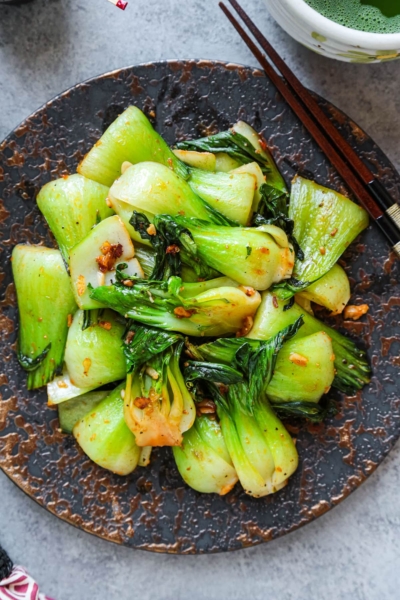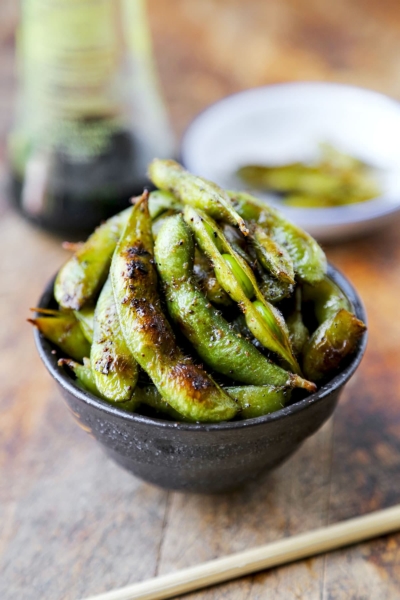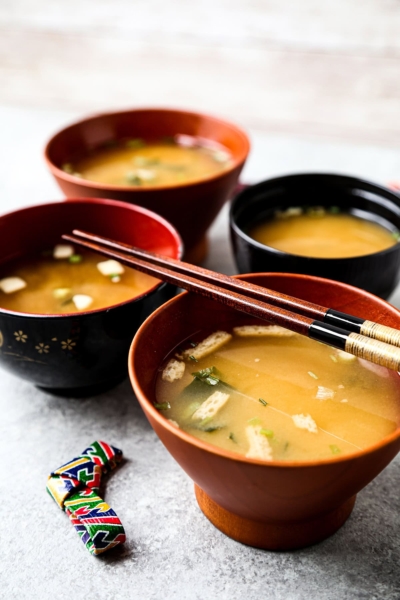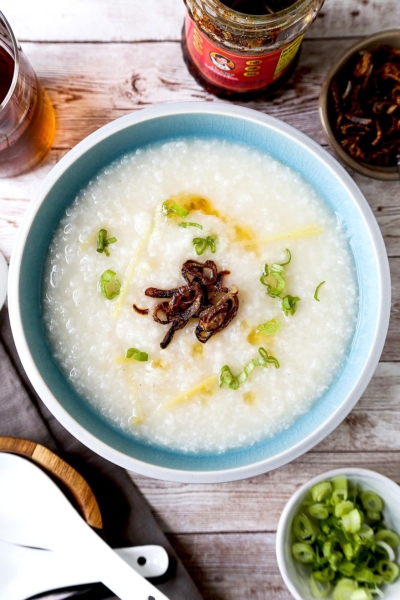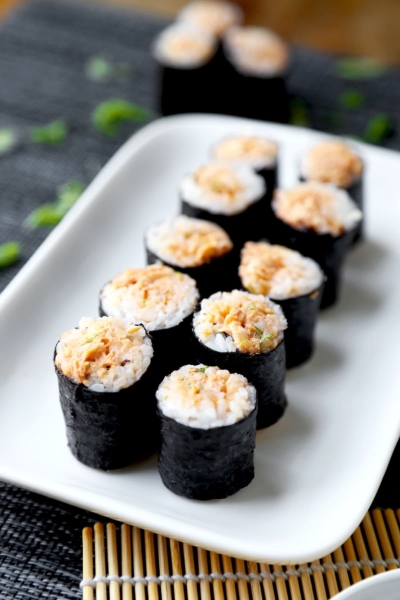Korean marinated eggs are sweet, savory, and slightly spicy. I like to serve them with spicy, salty, and pungent Korean dishes as they tone down the palate between bites and help reset my tastebuds. They are also delicious served with a bowl of rice and some kimchi for a simple dinner that’s packed with flavor!
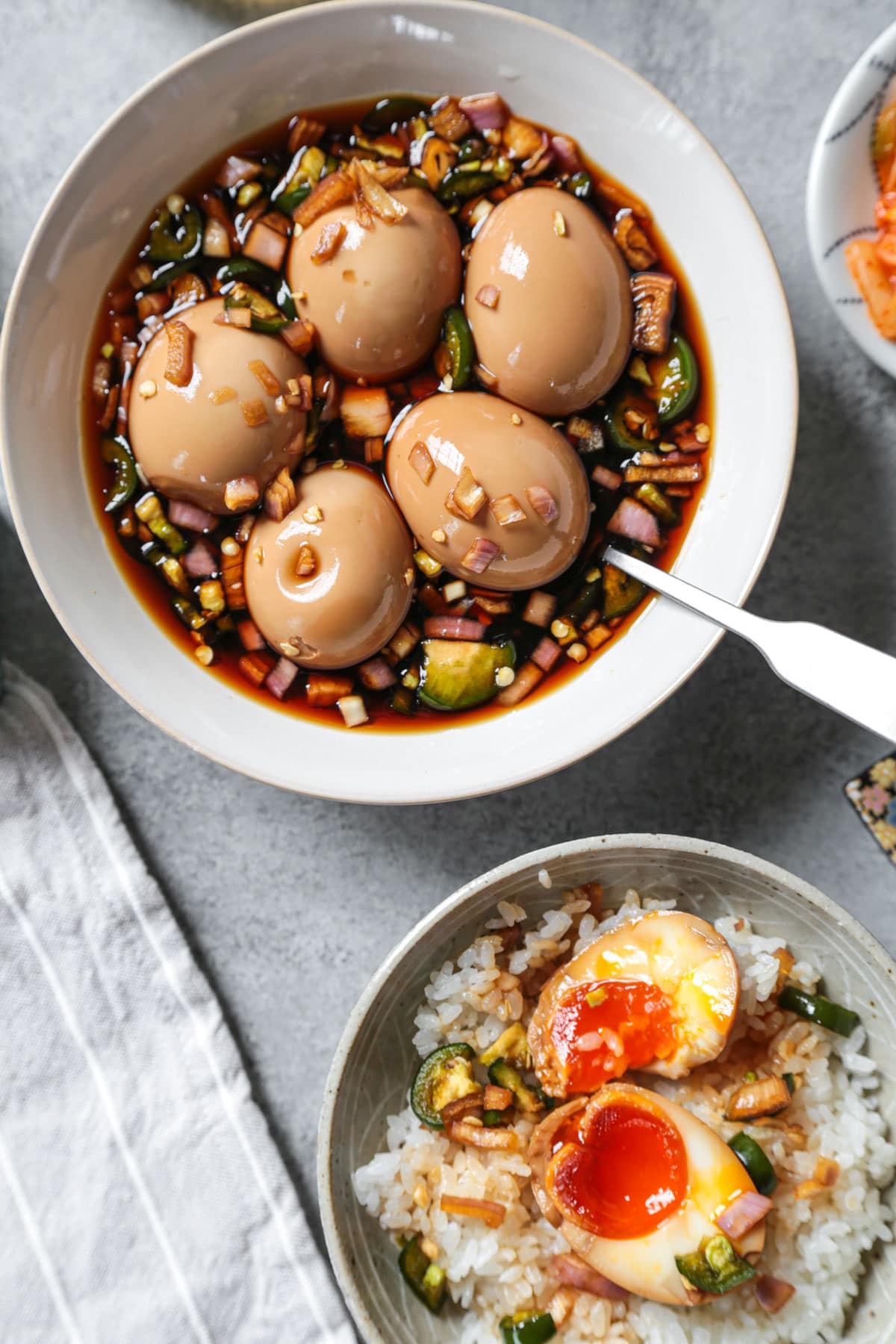
Marinated eggs are such a great invention! They are easy to make and pair well with so many dishes. I have been using ramen eggs (ajitsuke tamago) to top my bowl of ramen for as long as I can remember, and recently I have become a huge fans of Korean marinated eggs (mayak gyeran). They taste very different than ramen eggs in that they are quite sweet (ramen eggs aren’t), and can also pack quite a bit of heat depending on the spiciness of the jalapeno used.
Personally, I prefer eating them with a bowl of white rice or some savory noodles to temper the sweetness. When paired with a savory dish, they can be quite magical! They elevate the overall taste and bring the perfect balance of sweet and savory.
Table of contents
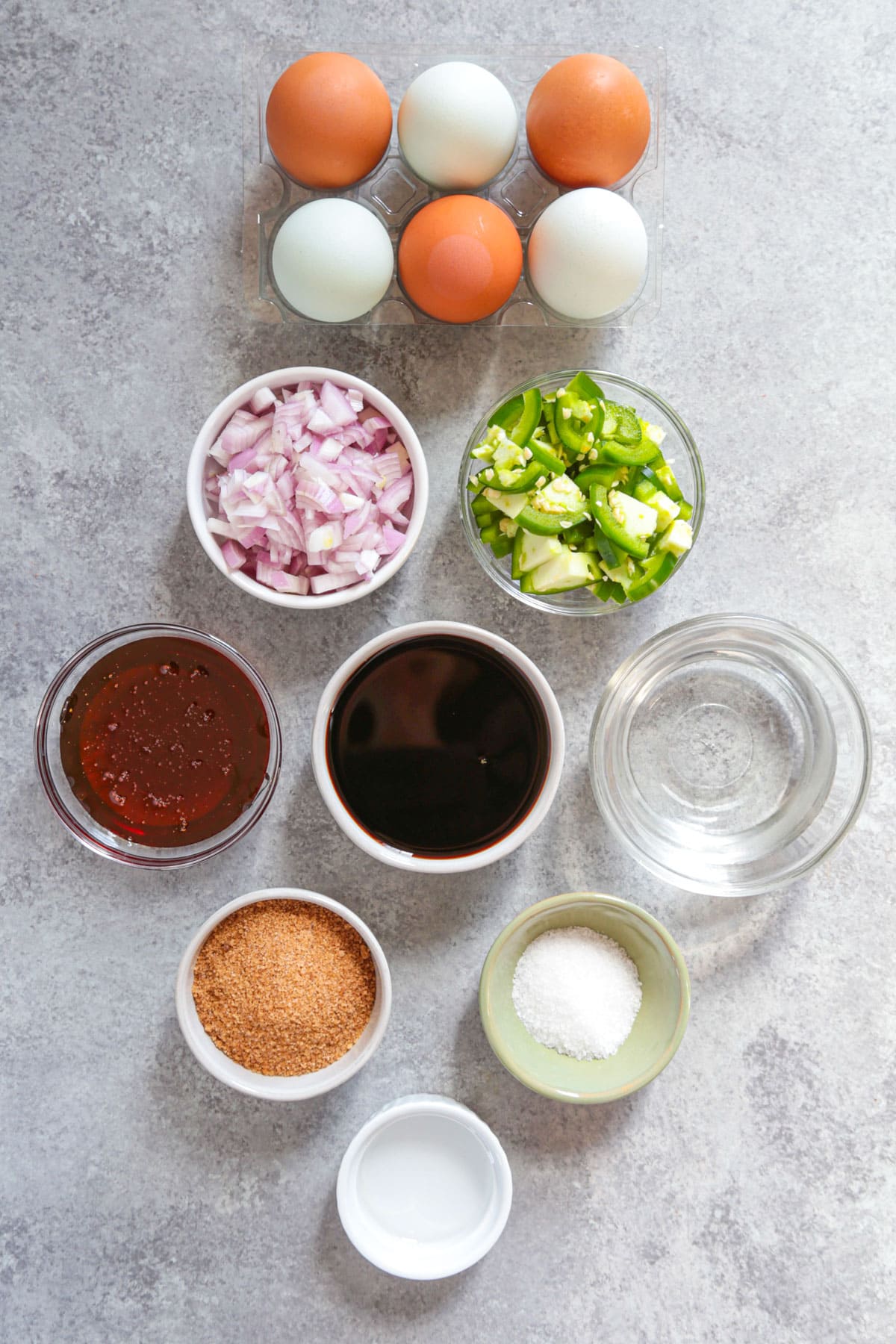
Ingredients
- Eggs: I always recommend using pasture raised eggs because they are not just healthier for you, they also taste significantly better. I am using large eggs but regular eggs are also okay.
- Salt and vinegar: You will need salt and vinegar to season the water the eggs will be boiling in. By doing so, the shells will be easier to peel.
- Soy sauce: For this recipe I am using Japanese soy sauce , but feel free to use Korean soy sauce if you have some. Korean soy sauce is slightly saltier than Japanese soy sauce, so it works just as well for this dish.
- Water: A little water is added to dilute the strong flavors of the ingredients used in the marinade.
- Sugar and honey: Both sugar and honey bring sweetness to the marinade, but honey also adds a floral element.
- Onion and jalapeno pepper: Both of these vegetables add some heat to the marinade and are also delicious once they take on the flavors.
Variations
- To add more heat: Use 2-3 Thai chilis instead of a jalapeno pepper, and finely chop them. These little red and green chilis can add a significant amount of heat so I recommend starting with 2 first, and do a taste test.
- For some nuttiness: Add 1 teaspoon of toasted sesame oil to the marinade + 1 teaspoon of sesame seeds.
- For some aromatics: Add freshly chopped cilantro or basil. Only add them right before serving so they retain their bright green color and fresh aroma.
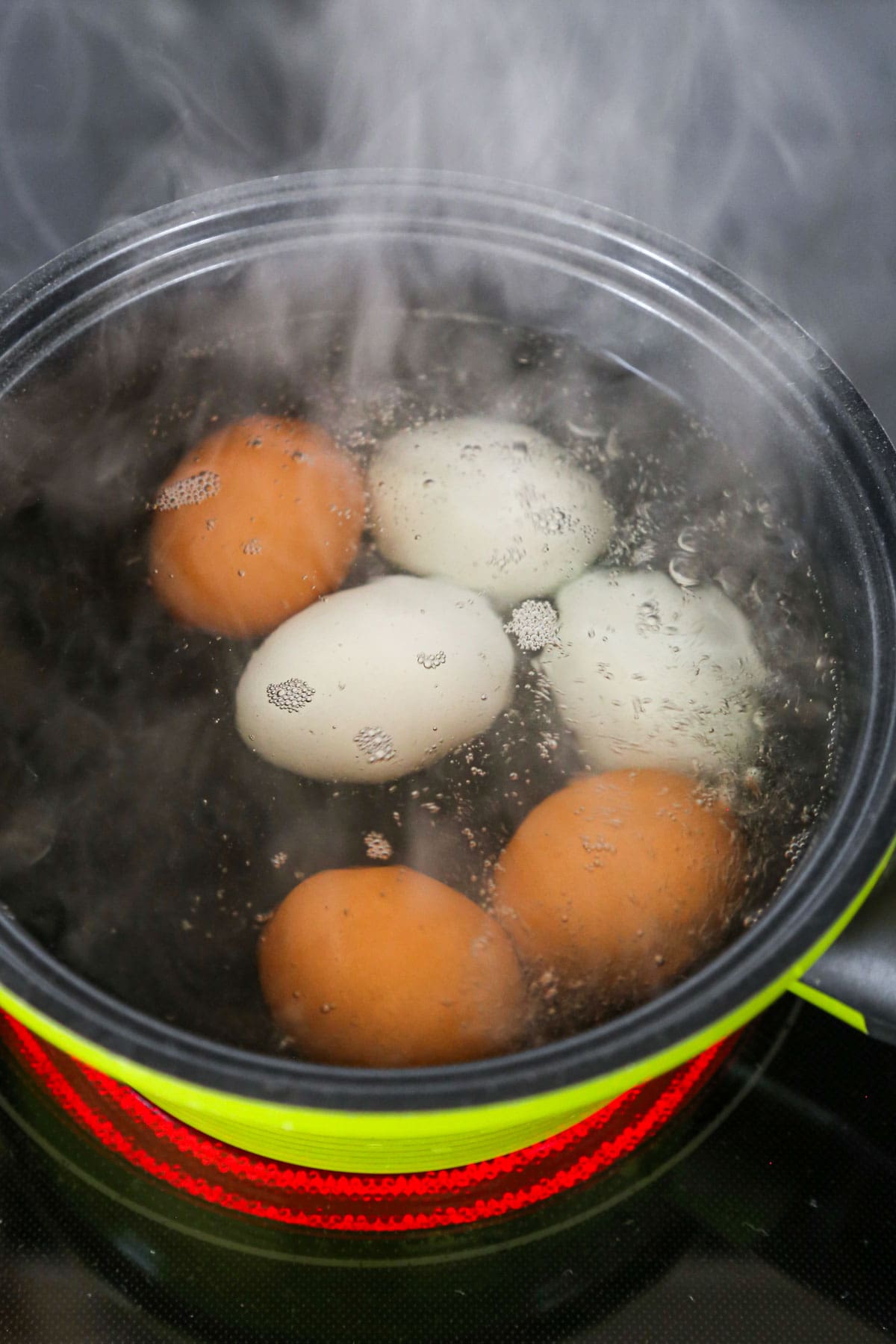
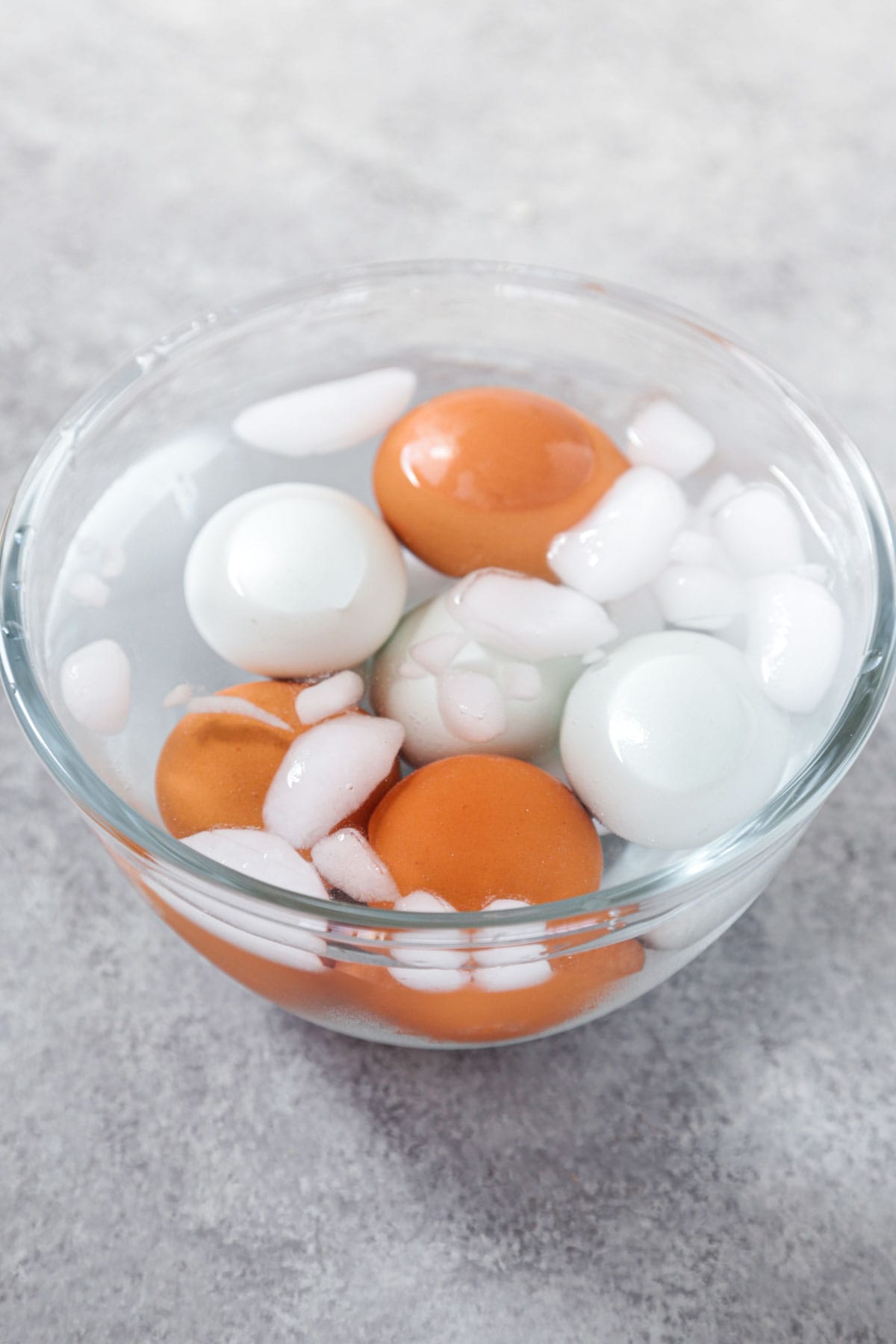
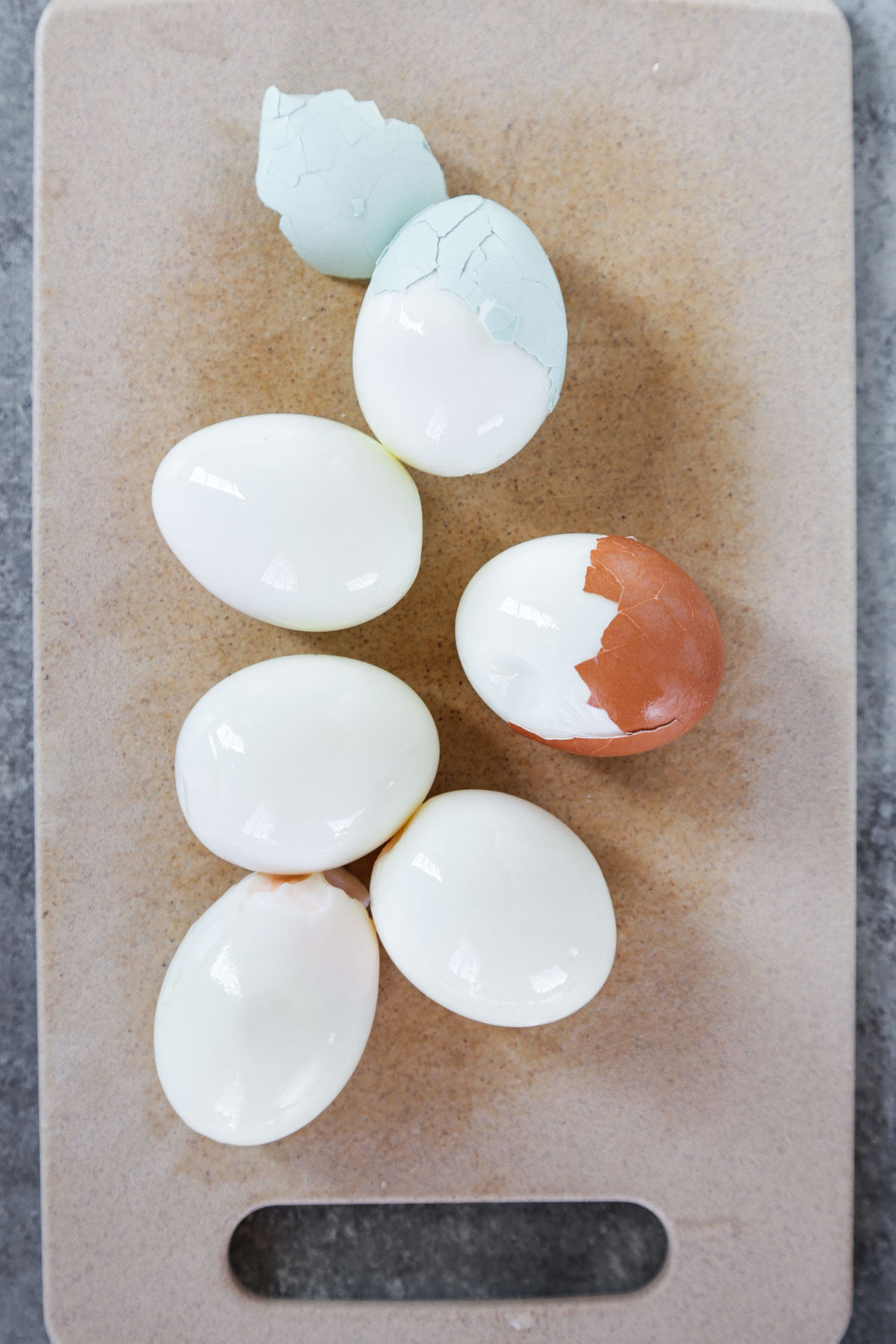
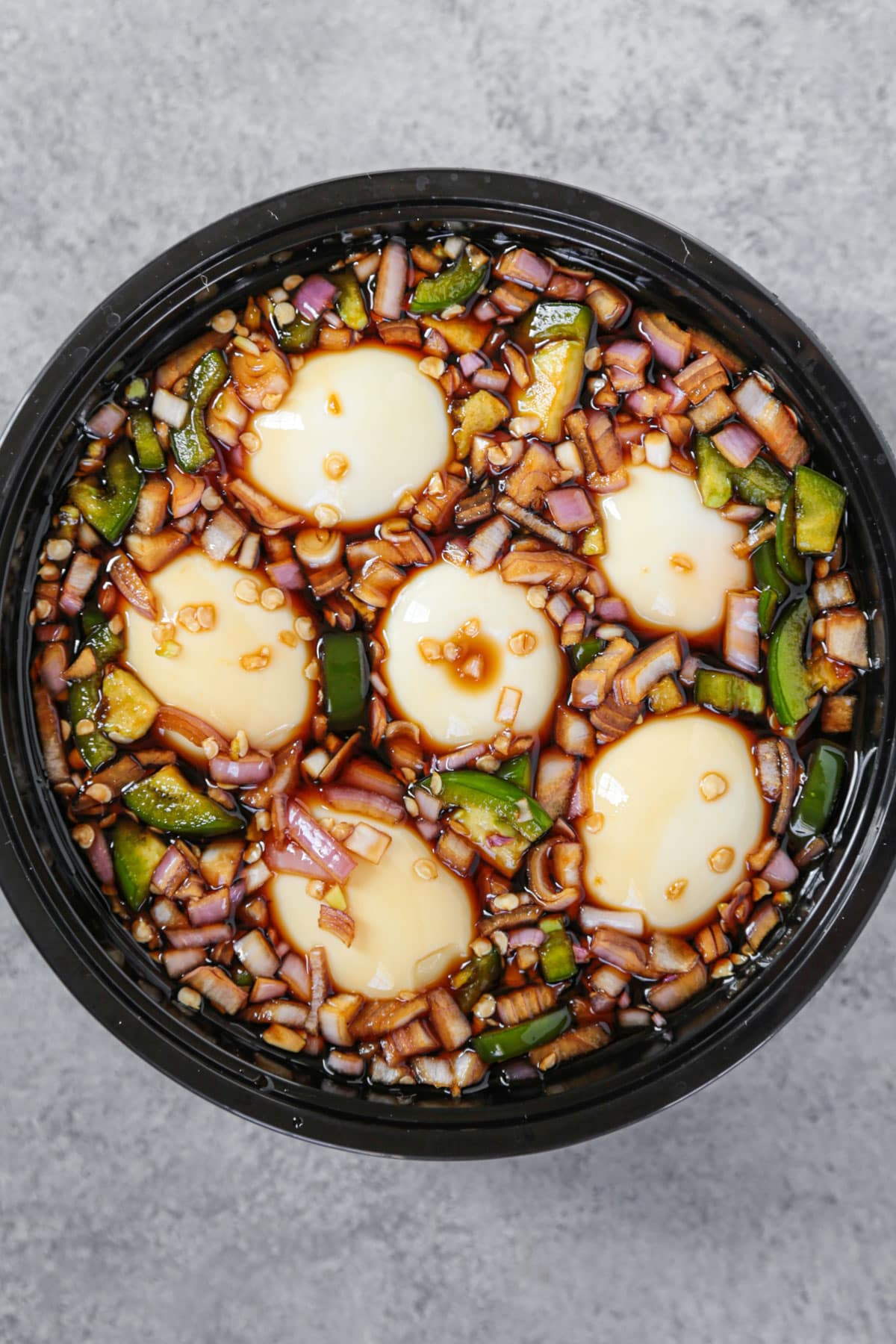
How To Make These Korean Marinated Eggs
- Fill a cooking pot with water and add the vinegar and salt and bring the water to a boil.
- Make the marinade.
- Boil the eggs, drain, and place them in an ice bath.
- Peel the eggs and add them to the marinade.
- Let them sit in the marinade for at least 3 hours before eating.
- Serve them with your favorite Korean dish or with a bowl of rice.
Expert Tips
- Take the eggs out of the fridge 30 minutes before boiling them. This helps the shells from cracking once they are added to the boiling water. You can also place the eggs in a warm bowl of water for a few minutes to speed up the process.
- Peel like a pro. Gently tap the bottom and top parts of the egg on a hard surface like a kitchen counter. Then roll it back and forth with the palm of your hand until the shell is cracked enough that it’s easy to peel.
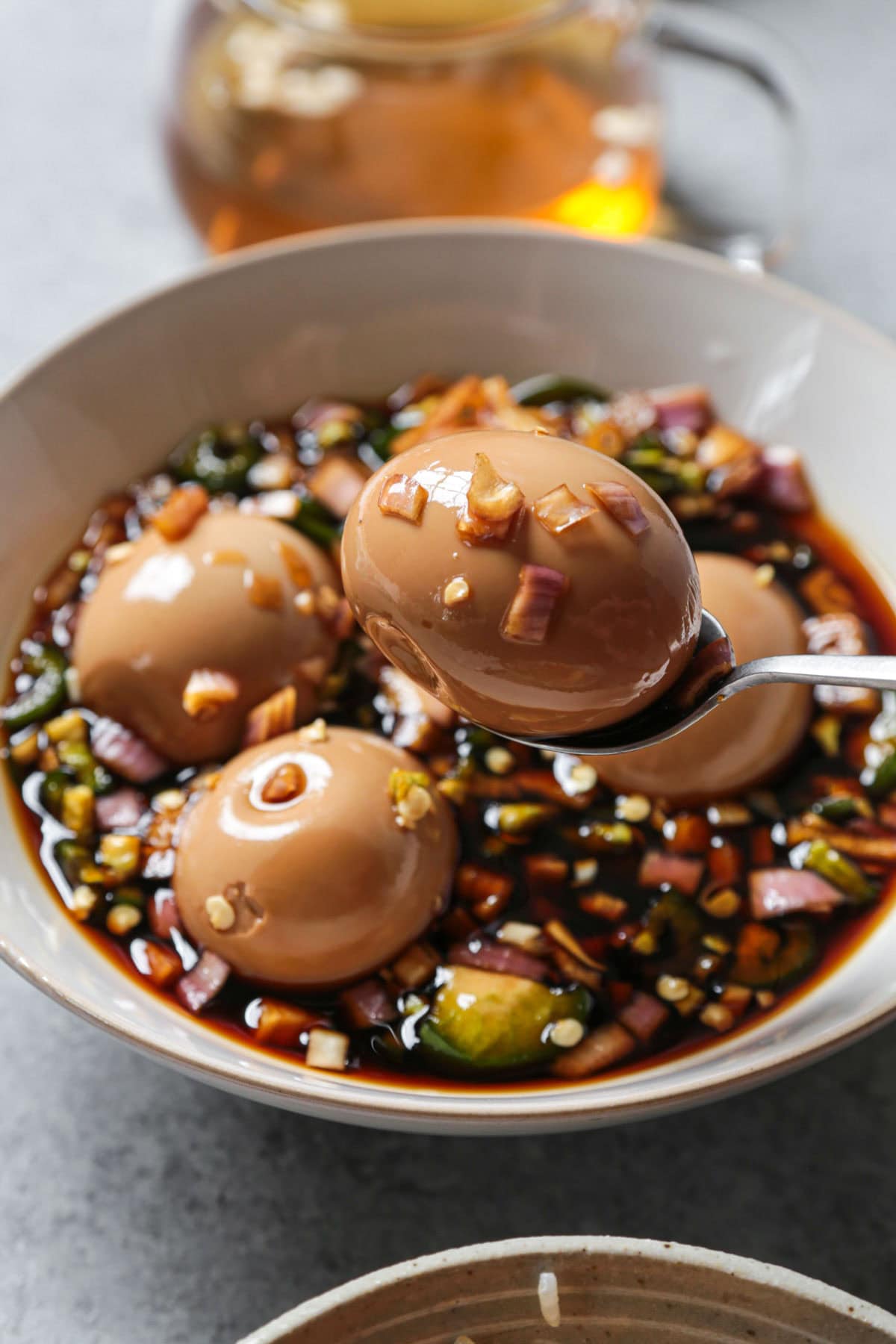
Storage
These mayak eggs will keep well in the fridge, stored in an airtight container, for up to 7 days. There is no reheating needed since they can be enjoyed cold or at room temperature.
What To Serve With Them
Good dishes to serve with these sweet eggs should be savory, salty, tangy, and spicy. I personally love to combine fizzy and pungent kimchi with these eggs, or use them as a topping for simple fried noodles with soy sauce.
Here are other dishes that will marry beautifully with this recipe:
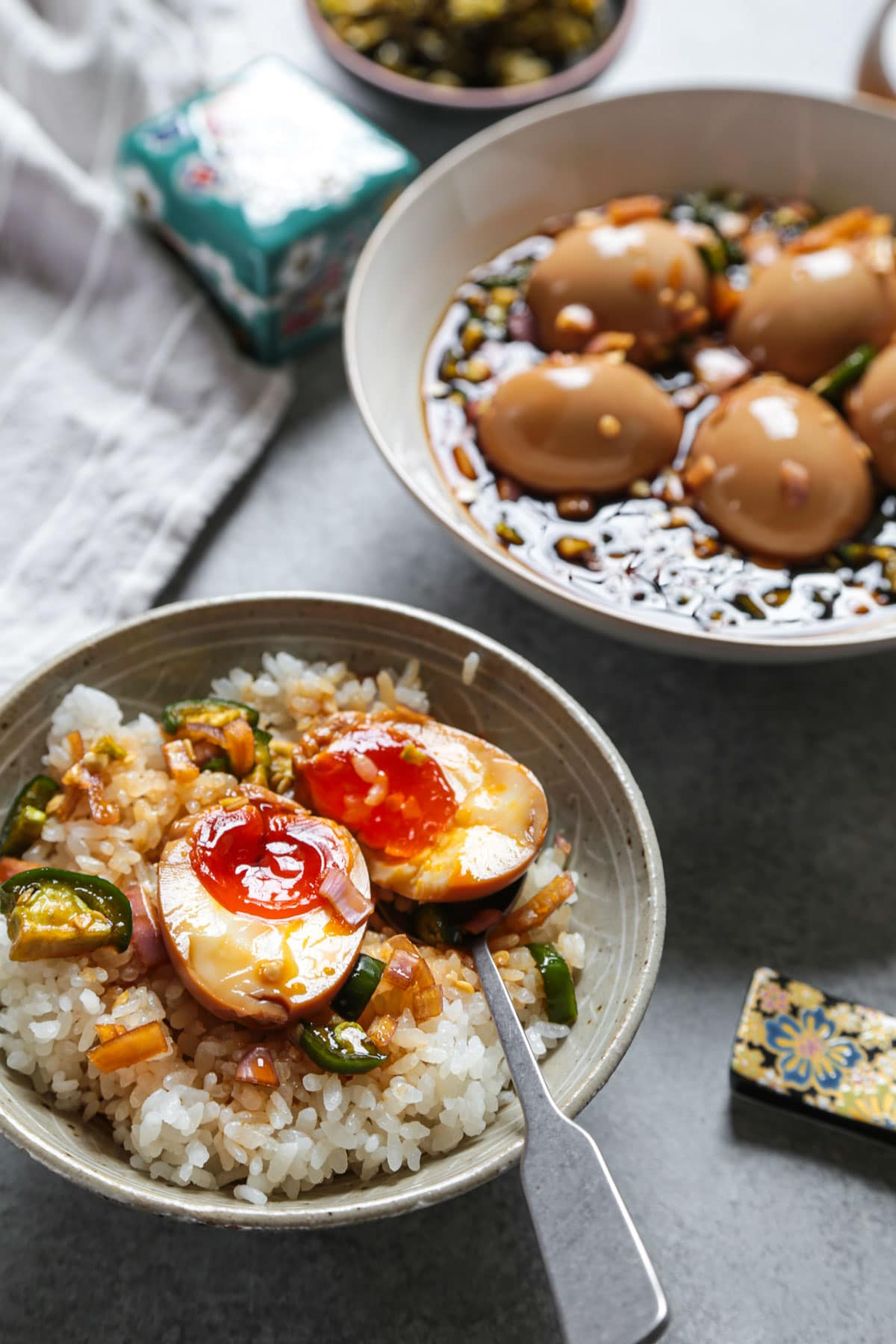
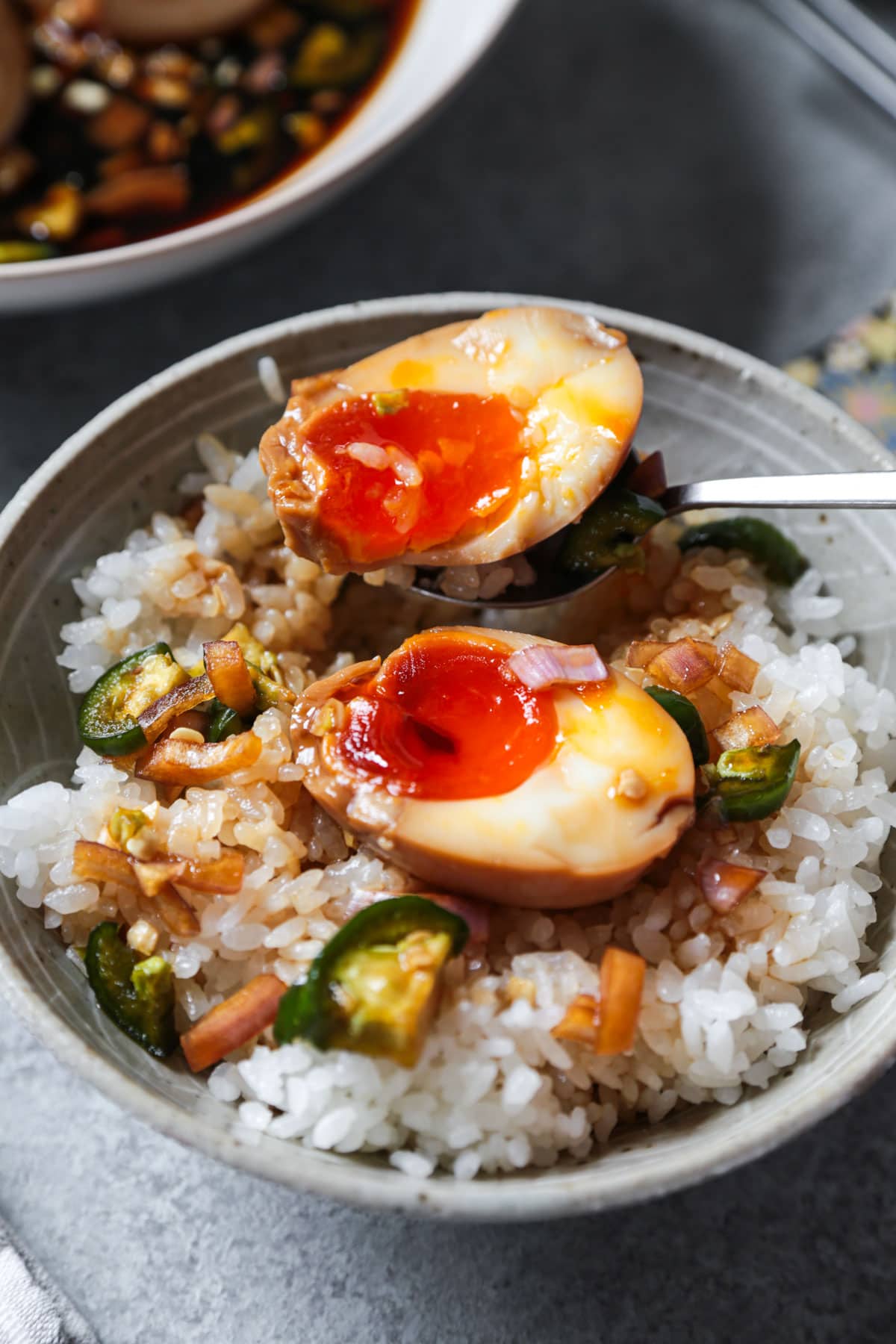
Frequently Asked Questions
That depends on how much flavor you want them to have. Leaving them overnight will infuse them with plenty of flavor, but not so much that the taste will be overwhelming (my preference is to leave them overnight). If you want just a touch of sweetness, 3 hours should suffice.
When it comes to boiling eggs, slightly older ones are generally preferred because they peel more easily.
Peeling them under running water can help. Another successful trick is to submerge the eggs in cold water and refrigerate them for about 3 hours. This gives the eggs time to shrink away from the shells and in turn, make it easier to peel.
Did you enjoy this recipe? Are there changes you made that you would like to share? Share your tips and recommendations in the comments section below!
PrintKorean Marinated Eggs
Deliciously sweet, savory, spicy, and creamy Korean marinated eggs are the perfect topping for your next bowl of rice!
- Prep Time: 10 minutes
- Cook Time: 6 minutes
- Total Time: 16 minutes
- Yield: 6 eggs 1x
- Category: Side
- Method: Boiling
- Cuisine: Korean
- Diet: Low Calorie
Ingredients
- 6 eggs
- 2 teaspoons salt
- 1 tablespoon white vinegar
- 1/2 cup soy sauce
- 1/2 cup water
- 1/3 cup light brown sugar or granulated sugar
- 1/3 cup honey
- 1 small onion or shallot, finely chopped
- 1 jalapeno pepper or serrano pepper, chopped
Instructions
- Boil the eggs. Fill a medium size pot with water over high heat, and add the salt and vinegar. When the water is boiling, gently add the eggs and boil for 6 minutes.
- Make the ice bath. Meanwhile, fill a bowl with water and plenty of ice.
- Cool the eggs. Drain the eggs and place them in the ice bath. Let them cool for about 10 minutes, until they have completely cooled down.
- Make the marinade. Mix the soy sauce, water, sugar, honey, onion, and jalapeno pepper, in a storage container (not too big since the egg should be submerged in liquid).
- Marinate the eggs. Gently peel the eggs and add them to the marinade. Close with a lid and marinate for at least 3 hours or overnight.
- Serve. Serve the eggs with some rice or noodles.
Notes
Save the eggs in a storage container and refrigerate for up to 7 days.
Nutrition
- Serving Size: 1 egg
- Calories: 102
- Sugar: 6.4g
- Sodium: 145mg
- Fat: 4.8g
- Saturated Fat: 1.6g
- Unsaturated Fat: 1g
- Trans Fat: 0g
- Carbohydrates: 7.8g
- Fiber: 0.6g
- Protein: 6.8g
- Cholesterol: 186mg

